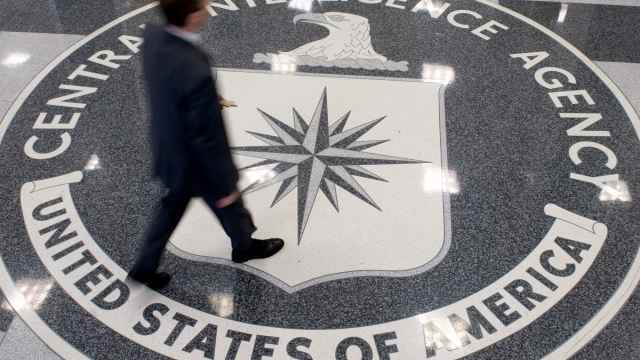TEHRAN, Iran — Iran has developed a version of the Russian S-300 missile and will test-fire it soon, the official news agency IRNA said, two months after Moscow decided not to deliver the missile to Tehran to comply with UN sanctions.
"The Iranian [version] of the S-300 system is undergoing field modification and will be test-fired soon as other long-range systems are being designed and produced," IRNA quoted Brigadier General Mohammad Hassan Mansourian, a commander in Iran's elite Revolutionary Guards, as saying.
World powers are locked in an eight-year standoff with Iran over its nuclear energy program, which they believe will be used to develop nuclear bombs rather than be devoted to peaceful generation of electricity, as Tehran says.
Some Western officials suspect that Iran's development of more sophisticated missiles and some much-publicized missile tests could serve the goal of developing a deliverable nuclear weapon.
The Islamic Republic denies such accusations, saying its missile development efforts are for defensive purposes only.
President Dmitry Medvedev banned the delivery of the high-precision S-300 air defense system to Iran in September, scuttling a tentative deal in gestation for years, saying it would violate expanded UN sanctions imposed in June over Iran's defiance of demands to curb its nuclear program.
Iranian officials said after Russia scrapped the sale that Tehran had decided to build its own model of the S-300 but gave no sign that such plans had advanced beyond the drawing board.
"Buying S-300 missiles from Russia was on the agenda to meet some of the security needs of our country," said Mansourian. "But under the pretext of the [UN Security Council] resolution and due to American and Zionist pressure, Russia refused to deliver the defensive system."
The Revolutionary Guards oversee Iran's missile program.
The United States and Israel had urged Moscow to scrap the deal, fearing Iran could use S-300s to shield nuclear facilities that they suspect are part of an atomic bomb program.
U.S. and Israeli officials have not ruled out a pre-emptive attack to knock out Iran's nuclear sites if diplomacy fails.
Iran this week offered world powers some dates for renewed talks, but President Mahmoud Ahmadinejad said Thursday that the disputed nuclear program would not be up for negotiation.
The Islamic Republic has warned that its response to any military attack would be crushing.
Iranian officials have criticized their Russian counterparts for unilaterally nullifying the S-300 sale contract and threatened to seek compensation.
Last month, a senior Russian official said Moscow planned to pay back a $166.8 million advance payment made by Iran for the S-300.
Moscow's support for a fourth round of UN sanctions was part of a gradual shift closer toward the tougher stance that the United States and European Union have taken toward Iran.
Russia, which has built Iran's first civilian atomic power plant, backs Western efforts to make Iran prove its nuclear work is purely peaceful, but strongly opposes any use of force.
A Message from The Moscow Times:
Dear readers,
We are facing unprecedented challenges. Russia's Prosecutor General's Office has designated The Moscow Times as an "undesirable" organization, criminalizing our work and putting our staff at risk of prosecution. This follows our earlier unjust labeling as a "foreign agent."
These actions are direct attempts to silence independent journalism in Russia. The authorities claim our work "discredits the decisions of the Russian leadership." We see things differently: we strive to provide accurate, unbiased reporting on Russia.
We, the journalists of The Moscow Times, refuse to be silenced. But to continue our work, we need your help.
Your support, no matter how small, makes a world of difference. If you can, please support us monthly starting from just $2. It's quick to set up, and every contribution makes a significant impact.
By supporting The Moscow Times, you're defending open, independent journalism in the face of repression. Thank you for standing with us.
Remind me later.





